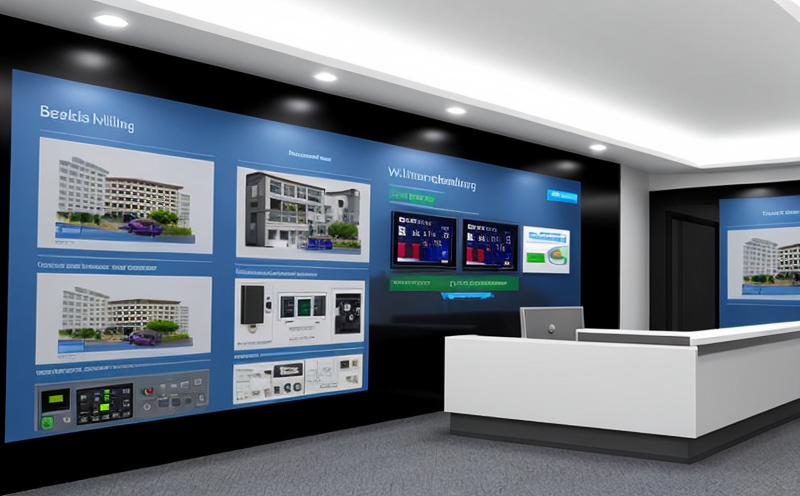EN 15232-4 Automation System Benchmarking
EN 15232-4 is an international standard that sets out the requirements for benchmarking automation systems used in smart building and infrastructure applications. This service focuses on evaluating and validating these systems to ensure they meet the stringent performance criteria outlined by this standard.
The process involves a series of tests designed to assess the efficiency, reliability, and interoperability of the automation system within its intended environment. The testing ensures that the system can adapt to changing conditions and operate seamlessly with other building management systems (BMS) and smart devices.
Automation systems in smart buildings are critical for optimizing energy consumption, enhancing occupant comfort, and ensuring compliance with environmental regulations. By using EN 15232-4 Benchmarking, organizations can ensure their systems are not only compliant but also at the forefront of technological advancements.
The benchmarking process typically involves multiple stages:
- System installation
- Initial configuration and setup
- Performance testing under various operational scenarios
- Data analysis and reporting
During the performance testing, a wide range of parameters are monitored to ensure the system's reliability. These include:
- Response time for control commands
- Accuracy in sensor readings
- Energy consumption levels
- Communication protocols adherence
- Interoperability with other systems
The testing process is highly technical and involves the use of advanced instrumentation to gather accurate data. Our team of experts ensures that all tests are conducted under controlled conditions to provide reliable and repeatable results.
After completing the benchmarking, we produce a detailed report summarizing the test findings and recommendations for improvement. This report serves as a valuable tool for decision-makers within organizations looking to optimize their building operations.
The importance of this service cannot be overstated, especially in today's world where sustainability and efficiency are key priorities. By adhering to EN 15232-4 standards, organizations can ensure they are meeting the highest industry standards while also contributing positively to the environment.
Why It Matters
The benchmarking process for automation systems in smart buildings is crucial for several reasons. Firstly, it ensures that the systems are operating efficiently and effectively, leading to cost savings through reduced energy consumption. Secondly, it enhances occupant comfort by providing a more controlled and optimized environment.
Compliance with international standards like EN 15232-4 is essential for organizations seeking to operate within regulatory frameworks. This not only protects them from potential legal issues but also enhances their reputation as industry leaders in sustainable building practices.
The benchmarking process also plays a key role in the development and optimization of new technologies. By continually testing and refining these systems, we can identify areas for improvement and innovate solutions that push the boundaries of what is possible.
In addition to these benefits, benchmarking helps organizations maintain a competitive edge in the market. With increasing demand for smart buildings and sustainable infrastructure, those who invest in thorough benchmarking are better positioned to meet this demand and attract clients looking for cutting-edge technology.
Applied Standards
| Standard Number | Description |
|---|---|
| EN 15232-4 | Automated systems for building automation and control, Part 4: Benchmarking of building management system (BMS) functionality. |
The standard provides a framework for the benchmarking process, outlining the requirements for testing and assessing the performance of BMS in smart buildings. The table above lists the key standard that this service adheres to.
Benefits
- Enhanced system efficiency leading to cost savings
- Improved occupant comfort and satisfaction
- Achievement of regulatory compliance
- Promotion of sustainable building practices
- Innovation in technology development and optimization
- Enhanced market competitiveness
- Reputation as a leader in sustainable technologies
The benchmarking process not only ensures that systems are operating at their best but also provides valuable data for continuous improvement. This can lead to further innovations in the field and contribute to the overall advancement of smart building technology.





